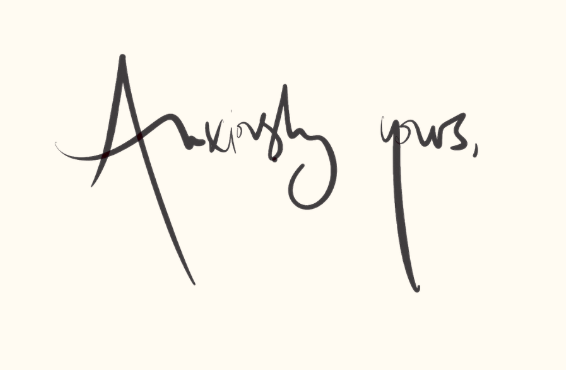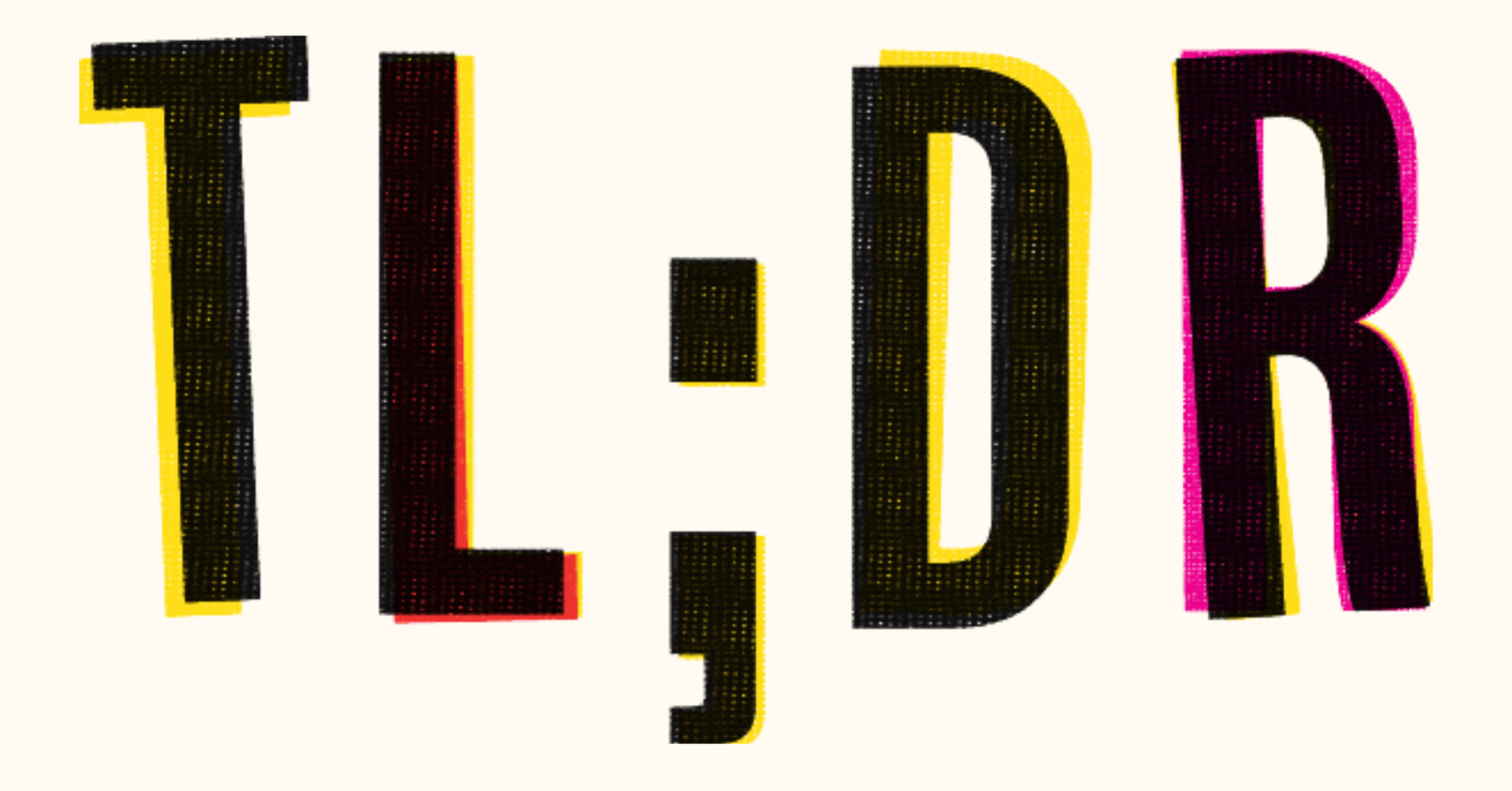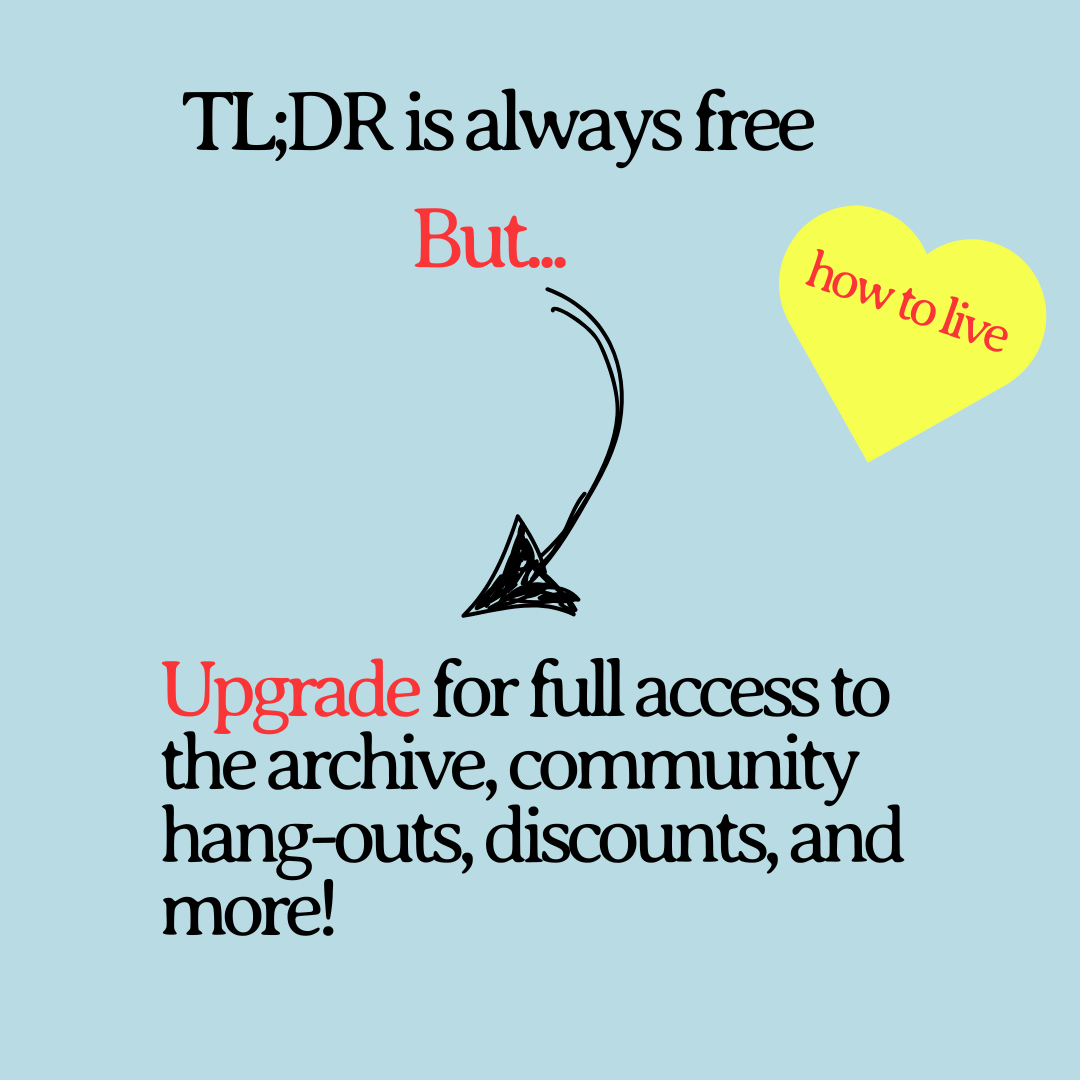TL;DR is a monthly digest summarizing the vital bits from the previous month's How to Live newsletter so you don't miss a thing.
Buying Cannabis Online Is Now Legal, And Incredibly Convenient
For years, buying cannabis meant taking a trip to a dispensary, dealing with long lines, limited selection, and inconsistent pricing. But thanks to changing laws and innovative online retailers, buying high-quality THC products is now 100% federally legal—and more convenient than ever.
And when it comes to quality and reliability, Mood is leading the way…
Because they’ve completely flipped the script on cannabis shopping. Instead of memorizing hundreds of confusing strain names – like “Gorilla Glue” and "Purple Monkey Breath" – you simply choose how you want to feel: Creative, Social, Focused, Relaxed, Happy, Aroused, and more.
Each gummy is formulated with the perfect blend of Delta-9 THC and botanicals to deliver the perfect mood.
Want a great night’s sleep? Try the Sleepytime gummies. Need laser focus Mind Magic gummies have you covered. Hotter sex? Try the Sexual Euphoria gummies.
It's cannabis shopping that actually makes sense for “normal” people.
SEPTEMBER 2025
This newsletter is my life and my livelihood. If How to Live matters to you, please help me keep making it. Become a paid subscriber—or make a recurring or one-time donation—to say: this work matters, keep going. 🙏
On September 3rd, 2025, I Wrote About A Cabinet of Curiosities for the Human Experience.
The Wellcome Collection is a free museum and library in London devoted to health—not just a medical condition, but a lived, cultural experience.
For anyone interested in mental health, the Collection reminds us that psychology doesn’t exist in a clinical vacuum—it’s cultural, historical, and deeply human. Their holdings stretch from early psychiatric texts to outsider art, from Freud’s couch to modern reflections on illness and recovery.
You don’t need to be in London to step inside. The website itself is a labyrinth worth exploring, entirely free:
At its heart, the Wellcome Collection is animated by a simple belief: everyone’s experience of health matters. If, like me, you're captivated by the personal and cultural stories behind psychology, how our inner lives are shaped by history, and how we narrate our experience, you're likely to lose hours on the site (unless, you live in London, in which case, RUN THERE!)
On September 10th, I Wrote About The Only Manual for Living You’ll Ever Need.
Four years ago, on September 8th, 2021, I sent my first How to Live missive into the ether. Literally. I had zero subscribers. By the end of that first day, I had 52. By the end of the month, I had nearly 500.
I've watched it rise and fall and rise and fall for four years—unpredictable, like emotion. It's a continuous lesson in uncertainty and impermanence.
Now, it hovers around 13K subscribers, which is still hard for me to believe, and it's all thanks to you that I keep writing this. Without your interest, engagement, emails and curiosity, there'd be no How to Live. Thank you.
The entrance into September finds me strangely emotional. Last week, I was in upstate, NY, winding down a month of intense writing. On one of my last days, I took the car to run errands, and was walloped by a sadness so acute, I had to pull off the highway to sob in the car. Why was I so sad? I still don’t know.
And yesterday, I lost control of my emotions in a way I haven’t in a very long time. It scared me. I was, after a long bunch of minutes, able to calm myself down, but later I thought: have I learned nothing in four years of writing this newsletter?
How did my emotions get past me?
We've all been there—completely hijacked by our own feelings, wondering how we became strangers to ourselves. Maybe you've woken up at 3am to a panic attack, or also been sideswiped by a grief so deep you had to pull over and sob in your car.
Lots of people have spiritual or religious practices they turn to that ground them, but what if you don't? What if you need something that works right now—not after meditation, not after therapy, but in the heat of the emotional storm?
That's when I remembered my copy of AIM—a 15-page document I have stored in a secret folder on Evernote.
AIM is not theory or philosophy. It's a precision instrument—specific, actionable steps that can reset my emotional state when everything feels chaotic and out of control.
Yesterday, I pulled it out and started reading through it, and felt that immediate shift everyone talks about but so few things actually deliver. The kind where your breathing slows, and your perspective shifts.
AIM isn’t available in bookstores or online. You can't google it, or ask ChatGPT for a summary.
But I have it, and it works. Every single time.
Today, I'm sharing what's inside the AIM document—and how you can get your hands on a copy.
Find it after the jump.
On September 17, 2025 I Wrote About The Overlooked Observation That Keeps Us Coming Back.
As I've gotten older, I've noticed how many known things I forget. The names of people's spouses, book titles (and often, their content). It's an unsettling feature of aging, but the more I think about what I've forgotten, the more I'm reminded of an undersung cognitive phenomenon that might explain the reason better than aging does.
The Zeigarnik Effect focuses on what we're prone to remember and why—and it's not what you'd expect—although it makes complete sense.
Let’s begin in Berlin.
It's 1926, and Bluma Zeigarnik is in a restaurant sharing a meal with her mentor Kurt Lewin—one of the founding figures of modern social psychology—and possibly other students (accounts differ). She's a graduate student from Russia, studying psychology. (She will later become a clinical pathopsychologist, a field she helped pioneer and develop.)

The waiter has nothing to write with, and Professor Lewin observes his ability to remember and track their complex orders. He recalls who ordered what, and who hadn't yet paid. Yet, what struck him was how much the waiter forgot once the check was settled and the plates cleared. The waiter seemed unable to recall not just details of their orders, but the patrons themselves.
After sharing these observations, Zeigarnik was intrigued, and that’s when all her experiments began…
On September 24th, 2025 I Wrote About The Paradox of Self-Awareness
You think you know yourself. I think I know myself. Most people think they know themselves.
Turns out, nearly all of us are wrong.
In 2014, organizational psychologist Tasha Eurich, an expert on building self-awareness, and a team of researchers embarked on a large-scale scientific study. They wanted to know whether there was a way to increase self-awareness.
While the team’s interest was on leadership in the workplace, Eurich’s findings are helpful for anyone interested in increasing their self-awareness.
Along the way, Eurich’s team came across some interesting figures. “Our data reveals that 95 percent of people believe they are self-aware, but the real number is 12 to 15 percent,” Eurich says. “That means, on a good day, about 80 percent of people are lying about themselves—to themselves.”
What’s that now?
Am I lying to myself?
Are you?
Turns out, the answer is yes.
Eurich discovered that what we’ve always believed about self-awareness is only half the story.
We think it means knowing ourselves deeply.
Thank you for subscribing! If you like this newsletter, please share it with friends!
Until next week, I will remain…

Amanda
P.S. Thank you for reading! This newsletter is my passion and livelihood; it thrives because of readers like you. If you've found solace, wisdom or insight here, please consider upgrading, and if you think a friend or family member could benefit, please feel free to share. Every bit helps, and I’m deeply grateful for your support. 💙
Quick note: Nope, I’m not a therapist—just someone who spent 25 years with undiagnosed panic disorder and 23 years in therapy. How to Live distills what I’ve learned through lived experience, therapy, and obsessive research—so you can skip the unnecessary suffering and better understand yourself.
Some links are affiliate links, meaning I earn a small commission at no extra cost to you. Every bit goes straight back into supporting this newsletter. Thank you!











 Upgrade
Upgrade